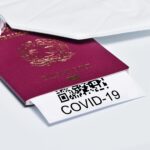For skilled professionals worldwide, securing Canadian permanent residency (PR) through the Express Entry system represents a significant life achievement. While many factors contribute to a successful application, one of the most powerful and often misunderstood assets is foreign work experience. This professional history gained outside of Canada is not just a line on a resume; it is a critical component that can determine both eligibility for key immigration programs and a candidate’s competitive standing in the Express Entry pool. Understanding precisely what counts as foreign work experience in Express Entry, and how to leverage it, is fundamental to transforming the aspiration of Canadian PR into a tangible reality. This guide provides a comprehensive overview of how to strategically use your global career to build a strong foundation for your Express Entry profile.
Table of Contents
- Demystifying Foreign Work Experience for Express Entry Eligibility
- The Strategic Impact of Foreign Work Experience on Your CRS Score
- What Qualifies? A Comprehensive Checklist for Validating Your Foreign Work Experience
- Frequently Asked Questions
Demystifying Foreign Work Experience for Express Entry Eligibility
Before an applicant can even think about their Comprehensive Ranking System (CRS) score, they must first meet the minimum eligibility criteria for one of the three federal programs managed by Express Entry: the Federal Skilled Worker Program (FSWP), the Canadian Experience Class (CEC), or the Federal Skilled Trades Program (FSTP). For most candidates applying from outside Canada, the FSWP is the most common gateway. A non-negotiable requirement for this program is at least one year of continuous, skilled foreign work experience. Without meeting this baseline, an individual cannot even create a valid Express Entry profile under the FSWP. This makes understanding the definition of qualifying work experience paramount. Immigration, Refugees and Citizenship Canada (IRCC) is meticulous in its definitions. The experience must have been gained within the last 10 years and must be in a single occupation classified under Canada’s National Occupational Classification (NOC) system as TEER 0, 1, 2, or 3, which generally correspond to managerial, professional, technical, and skilled trade roles. Furthermore, the work must be “continuous,” meaning at least 12 consecutive months of full-time employment (30 hours per week) or an equivalent amount in part-time hours (e.g., 15 hours per week for 24 months), without significant breaks. This foundational requirement underscores that foreign work experience is not merely a point-booster; it is the very key that allows many skilled workers to enter the Express Entry system in the first place.
The Strategic Impact of Foreign Work Experience on Your CRS Score
Once a candidate is eligible and has a profile in the Express Entry pool, the focus shifts entirely to maximizing their CRS score. While foreign work experience on its own does not award direct CRS points under the core human capital factors, its true power is revealed in the “skills transferability factors” section. This is where IRCC rewards candidates whose global experience, when combined with other strengths, demonstrates a high potential for successful economic integration in Canada. The system awards up to 100 points in this category, with a maximum of 50 points available through the combination of foreign work experience and strong language proficiency, and another 50 points for combining it with Canadian work experience. For instance, a candidate with three or more years of skilled foreign work experience who also achieves a Canadian Language Benchmark (CLB) level of 9 or higher in all four language abilities (reading, writing, listening, speaking) receives the maximum 50 points. This combination is often the single most significant point driver for applicants without Canadian education or work history. The synergy between these factors is a clear signal from the Canadian government that it values not just experience, but adaptable experience complemented by strong communication skills. Therefore, applicants should view their work history and language preparation not as separate tasks, but as interconnected elements of a single, powerful strategy to elevate their CRS score and secure a coveted Invitation to Apply (ITA) for permanent residence.
Key Takeaways: Maximizing CRS Points with Foreign Work Experience
- Language Proficiency is Crucial: The combination of three or more years of foreign work experience and a CLB score of 9 or higher is a game-changer, yielding a full 50 CRS points. This highlights the immense value of achieving the highest possible language test scores.
- One or Two Years Still Count: Even with one or two years of foreign work experience, combining it with a CLB 9 score can still grant a significant 25 points, making a substantial difference in a competitive pool.
- Synergy with Canadian Experience: For those who have both foreign and Canadian work experience, the skills transferability factors offer additional points. For example, having three or more years of foreign experience combined with at least one year of Canadian work experience can add another 25 points to a candidate’s score.
- No Direct Points, All Combination: It is vital to remember that foreign work experience does not award points in isolation. Its entire CRS value comes from being paired effectively with either high language scores or Canadian work experience, making a holistic profile strategy essential.
What Qualifies? A Comprehensive Checklist for Validating Your Foreign Work Experience
The burden of proof for foreign work experience rests entirely on the applicant. IRCC requires clear, verifiable evidence, and failure to provide it correctly can lead to a rejected application. To be considered valid, the experience must be paid work; volunteer positions, unpaid internships, or academic fellowships do not count. The work must consist of at least 30 hours per week for full-time consideration or a minimum of 15 hours per week for part-time. It’s important to note that any hours worked above 30 per week are not counted or credited. For those who are self-employed, proving work experience can be more complex, requiring evidence such as articles of incorporation, proof of self-employment income, and documentation from third-party individuals (like clients) indicating the service provided. The cornerstone of proving any employment, however, is the reference letter. This is not a simple letter of recommendation; it is a factual document that must be printed on official company letterhead and include specific, non-negotiable details: the company’s contact information, the signature of a supervisor or HR officer, the applicant’s name, all positions held within the company, the specific period of employment with start and end dates, the main duties and responsibilities for each position, the salary or wage, and the average number of hours worked per week. Meticulously gathering these documents is a non-negotiable step for anyone relying on their foreign work experience for Express Entry.
Frequently Asked Questions
What counts as skilled foreign work experience for Express Entry?
Skilled foreign work experience must be paid work obtained within the last 10 years. It must be classified under Canada’s National Occupational Classification (NOC) system in TEER 0 (management), TEER 1 (professional), TEER 2 (technical/skilled trades with college diploma), or TEER 3 (technical/skilled trades with apprenticeship/some college). Unpaid internships and volunteer work do not qualify.
How does IRCC calculate continuous work experience?
For eligibility in the Federal Skilled Worker Program (FSWP), an applicant needs at least one year of continuous work experience. This is defined as 1,560 hours of paid work, which can be achieved through at least 12 months of full-time employment at 30 hours per week or an equivalent amount in part-time work, such as 15 hours per week over 24 months.
What is the maximum number of CRS points available for foreign work experience?
While foreign work experience itself does not give direct points, it provides up to 50 CRS points under the skills transferability factors when combined with other criteria. A candidate can receive the maximum 50 points by having three or more years of foreign work experience and achieving a Canadian Language Benchmark (CLB) level of 9 or higher in all four language skills.
Can self-employed work experience be used for Express Entry?
Yes, self-employed foreign work experience can be used for the Federal Skilled Worker Program, provided it meets all the standard criteria (skilled, paid, continuous). However, the applicant bears a higher burden of proof, requiring documentation like articles of incorporation, proof of income, and letters from clients to verify the work performed.
What documents are essential to prove foreign work experience?
The most critical document is an official reference letter from each employer. This letter must be on company letterhead and include specific details: job title, employment dates, main duties, salary, average weekly hours, and a supervisor’s signature. Supporting documents like pay stubs or employment contracts can also be beneficial.
Talk to us to find out more. ->
The content above is not intended to provide legal advice or opinions of any kind and may not be used for professional or commercial purposes.







